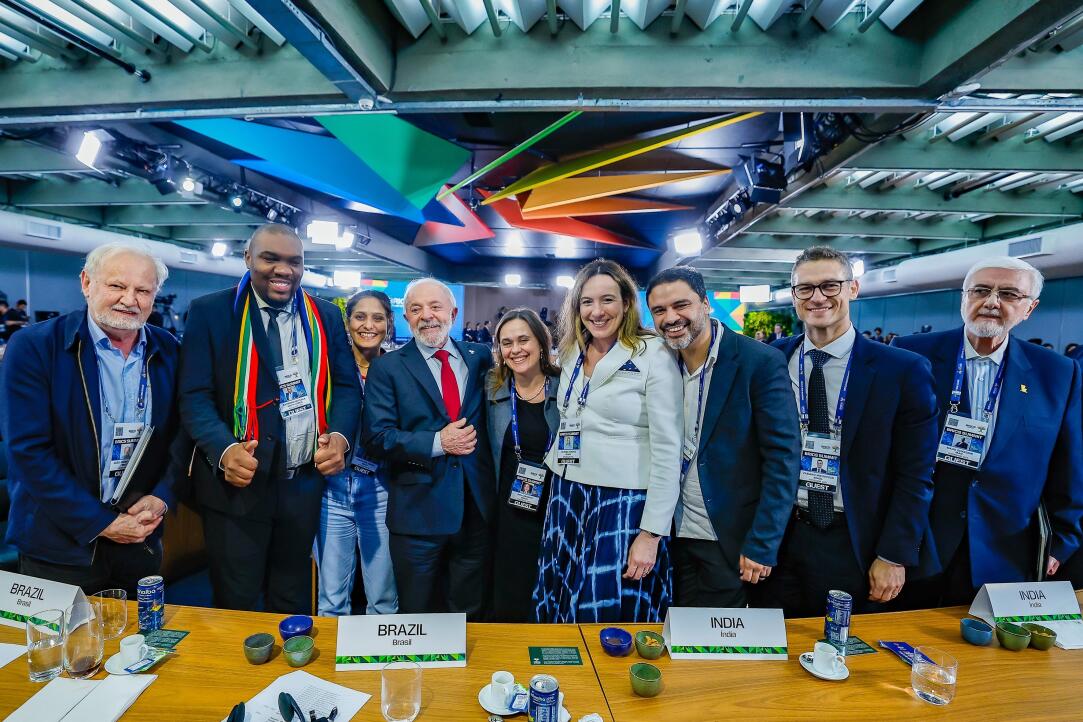HSE Takes Part in BRICS Summit

On July 6–7, 2025, the 17th BRICS Summit took place in Rio de Janeiro. For the first time in the organisation’s history, representatives of civil society from BRICS countries participated. HSE Vice Rector, Head of the BRICS Expert Council–Russia, and Co-Chair of the Russian Chapter the BRICS Civil Forum Victoria Panova attended the meeting of the bloc’s national leaders.
In the run-up to the summit, a special session of the Civil BRICS Council was held in Rio de Janeiro on July 4–5. Representatives of civil society from the member countries reached consensus on a set of recommendations, which were formally presented to the heads of state on July 6 during the summit.
The presentation of these recommendations at the highest level marked the culmination of months of work within the BRICS civil track, which brought together over 120 public organisations from BRICS member and partner countries. Since the beginning of the year, dozens of online consultations had been held to develop a coordinated position. In April and May, HSE University hosted roundtable discussions involving the Russian chapter of the Civil BRICS Council, during which thematic working groups drafted position papers. A key milestone in the preparation process was the first on-site session of the Civil BRICS Council, held on July 4–5 in Rio de Janeiro. The special session brought together delegations of civil society activists, experts, and academic representatives from BRICS countries and their partners.
The final document outlined proposals across seven key areas of the Global South’s agenda. The recommendations focus on enhancing cooperation in the social, economic, technological and cultural spheres, expanding academic exchange, strengthening digital sovereignty, promoting sustainable development, and formalising civil society participation within the BRICS framework. Collectively, they reflect a desire for a fairer and more equitable world order in which the interests of developing nations and the voice of civil society play an increasingly prominent role.

Victoria Panova
‘Civil BRICS is not just a movement. It is not merely a club. It is a family. For the first time, we can say that BRICS represents a qualitatively new form of international alliance. Civil BRICS is an important complement to this, as the process clearly demonstrates how close we are and how much we can accomplish together for the benefit of our peoples,’ noted Victoria Panova. She added that the formalisation of the Civil BRICS Council was made possible through the combined efforts of all member states, with crucial institutional steps taken during Russia’s presidency in 2024.
The establishment of the Civil BRICS Council was enshrined in the Kazan Declaration in July 2024. It became a natural continuation of the BRICS Civil Forums held annually since 2015. Over the past decade, this track of public diplomacy has evolved into a permanent platform for dialogue between civil society organisations and BRICS governments.
For several years, HSE University has been providing expert support for civil society engagement within the BRICS framework. The university actively contributes to shaping Russia’s people-to-people agenda and helps to promote the values of equitable dialogue, sustainable development, and inclusive community involvement in international cooperation processes.
The next on-site meeting of the Civil BRICS Council is scheduled for October 2025 in the city of Salvador, Brazil. It will continue the discussion of implementation mechanisms for the proposed initiatives and explore ways to broaden the participation of Global South countries in the bloc’s agenda.
See also:
HSE Students Represent Russia at BRICS+ Youth Innovation Summit in Pretoria
In May 2024, Pretoria, the capital of South Africa, hosted the BRICS+ Youth Innovation Summit, where students from HSE University represented Russia. They successfully defended their business projects and were among the top 15 speakers, winning the event. The summit was organised by the South African BRICS Youth Association (SABYA).
Moscow and St Petersburg Rank among Global Leaders in Spatial and Technological Development
HSE experts, in collaboration with researchers from China and India, have participated in the development of the Urban & Innovation Environment Index, a global ranking of cities. Moscow ranks fifth in the final global rating of urban agglomerations and first in the rating for those in BRICS+ countries. St Petersburg ranks seventh in the global rating and third in the BRICS+ rating.


